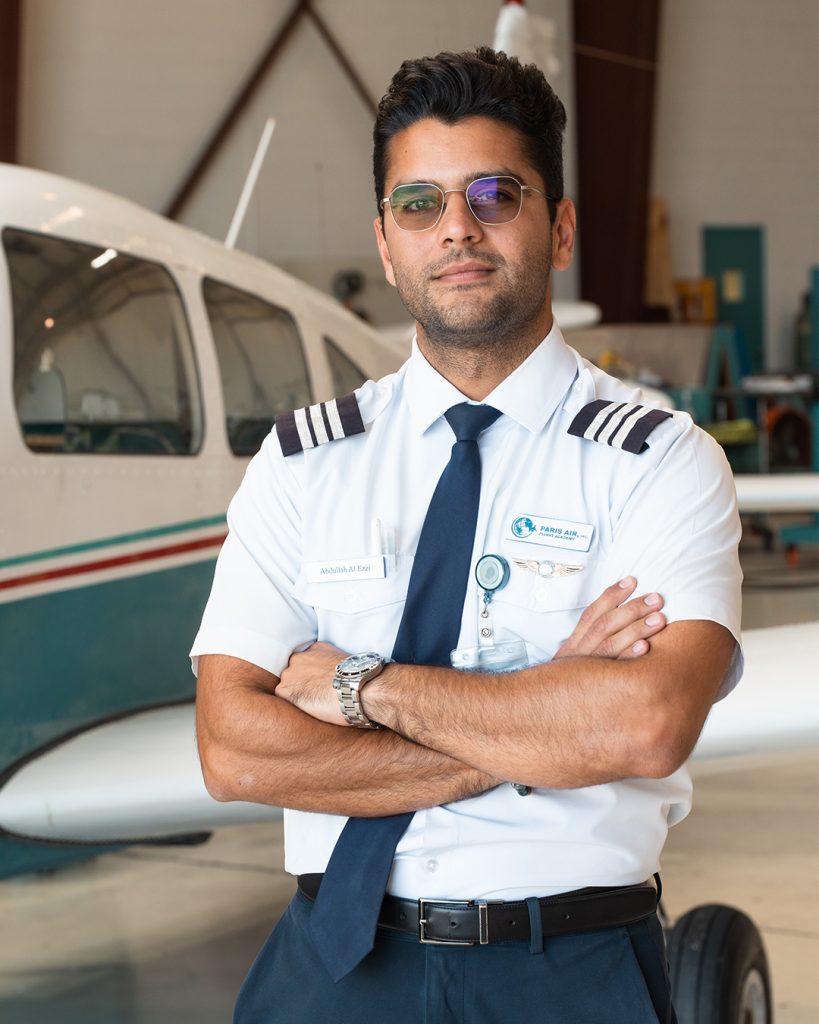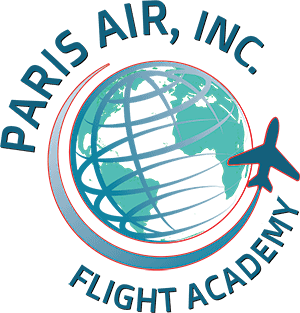Flight training can feel like an exclusive club with intimidating entry requirements, leading to misconceptions that deter many potential pilots. At Paris Air, we’ve encountered numerous flight training myths that misrepresent what it takes to become a pilot, and we’re here to set the record straight. Here, we’ll debunk five of the most common myths about flight training, so you can confidently take your first step toward earning your wings.

Myth 1: “You Need Perfect Vision to Become a Pilot”
Debunking the Myth
Many people believe that perfect 20/20 vision is a prerequisite for any aspiring pilot. While eyesight is important, the FAA allows for vision correction, including glasses or contact lenses, so long as a pilot can achieve 20/20 vision in each eye with them. This myth often prevents those with corrected vision from even considering aviation.
What You Need to Know:
The FAA’s vision requirements focus on your ability to see clearly with correction, not your natural vision. In fact, even color blindness doesn’t necessarily disqualify you; there are specific tests and allowances for it. With routine eye exams and the right corrective lenses, most people can meet the FAA’s vision standards.
Instructor Insight:
Paris Air’s experienced instructors can guide students through the specific FAA vision requirements. We have successfully trained many pilots with corrected vision, some of whom go on to fly commercially. As long as you can see the instruments clearly and read necessary visuals, vision correction will not hold you back.
Myth 2: “Flight Training Is Only for the Young”
Debunking the Myth
There’s a common misconception that you need to start flight training young if you ever hope to become a pilot. In reality, aspiring pilots of all ages come through Paris Air’s doors, and many pursue flight training later in life.
What You Need to Know:
There is no maximum age limit for learning to fly, and students often find that life experience can be an asset in flight training. Whether you’re looking to become a professional pilot or just want to fly recreationally, your age is less important than your passion and commitment to learning.
Student Spotlight:
At Paris Air, we’ve had students from every age group, from high school graduates to retirees. Some older students pursue flying as a new career chapter, while others do it simply for the love of flight. With tailored training programs, we accommodate various schedules, learning styles, and paces to help everyone succeed.
Myth 3: “Flying Is Dangerous”
Debunking the Myth
Flying might seem risky, but statistically, it’s among the safest modes of transportation, thanks to the rigorous training and safety protocols followed by pilots. At Paris Air, safety is our number one priority, and our instructors ensure every student gains the skills and confidence to handle a wide range of scenarios.
What You Need to Know:
Aircraft undergo strict inspections, and pilots are taught comprehensive safety procedures from day one. Training includes emergency preparedness, weather considerations, and how to respond to any unusual situations that may arise. With the right training, flying is incredibly safe, even safer than driving a car.
Instructor’s Take:
Our instructors emphasize that preparedness and awareness are the most effective safety tools. By learning the basics of aerodynamics, weather patterns, and emergency procedures, students can reduce potential risks. As our students learn, confidence in their skills grows, and fear around flying diminishes.
Myth 4: “You Must Be Good at Math and Science”
Debunking the Myth
Many people shy away from flight training due to the assumption that it requires advanced math or physics knowledge. While aviation involves some calculations, such as speed and fuel consumption, complex math or science is rarely required.
What You Need to Know:
Flight training emphasizes practical knowledge. For example, while pilots need to understand altitude, airspeed, and headings, they aren’t required to perform complex equations. Paris Air’s instructors simplify these concepts, focusing on essential skills rather than technical details, making it accessible for all backgrounds.
Tips for New Students:
Instead of focusing on calculations, instructors guide students through the tools and techniques used in real flight scenarios. From basic weather reading to compass use, students can understand core concepts without any technical background. With hands-on experience, any initial fear of math quickly dissipates.
Myth 5: “Flight Training Is Only for Those Who Want to Become Commercial Pilots”
Debunking the Myth
Some think flight training is solely for those looking to make aviation a career, but many students train for personal enjoyment. With options like the Private Pilot License, aviation can be a fulfilling hobby or a practical tool for personal travel.
What You Need to Know:
Whether you want to become a commercial pilot or just fly for fun, flight training opens doors to multiple paths. The Private Pilot License, for instance, lets you fly small aircraft without needing to pursue a commercial license. Many of our students at Paris Air find joy in recreational flying or use their skills to travel for personal or business purposes.
Student Perspective:
Several of our students have shared that they initially joined out of curiosity and soon found it to be a rewarding experience. Some enjoy the freedom and flexibility that comes with private flying, while others view it as a way to challenge themselves and gain a unique skill set. There’s no single right path; aviation offers something for everyone.
Flight training is often surrounded by myths, but at Paris Air, we know that passion, commitment, and professional guidance are what truly determine success. By debunking these common flight training myths, we hope to open up the world of aviation to anyone considering it. Whether you’re interested in a new career or a personal adventure, flight training at Paris Air is accessible, safe, and tailored to meet your goals. So don’t let these myths hold you back—reach out to us and take your first step toward the skies!
Looking to start your flight training journey? Contact Us Today or Apply Now!

